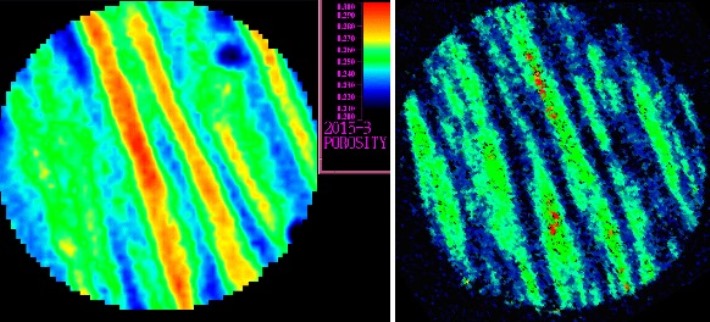Course Details
Home / Public Courses / Course Details
Special Core Analysis (RES48)
7-11 October 2024 5 days Vienna, AustriaCourse Fee: 3750 EUR + VAT
Computer Fee: 250 EUR + VAT
Description
Core analysis provides direct engineering measurements of reservoir rock. Knowledge of how these measurements are obtained and their limitations are essential for their successful application and incorporation in reservoir evaluation and simulation. Along with a review of the basic elements for core acquisition, preservation and sampling, participants will learn the fundamentals and advanced techniques for special core analyses. Presented are the procedures and workflow for designing and evaluating the most applicable special core analysis program for a particular stage in field development or reservoir management.
The course progresses from the measurement fundamentals to the essential evaluation and assessment of the laboratory results and onto the practical application in example simulation studies.
Course Level: Skill
Instructor: Jim Funk
The course progresses from the measurement fundamentals to the essential evaluation and assessment of the laboratory results and onto the practical application in example simulation studies.
Course Level: Skill
Instructor: Jim Funk

Designed for you, if you are...
- A new or experienced reservoir engineer, petrophysicist or geologist tasked with planning, performing, monitoring and using special core analyses for reservoir description and recovery modelling
How we build your confidence
With an engineering review of the fundamentals of special core analyses measurements you will learn the physics and mechanics of the process and techniques to evaluate and incorporate the experimental results. You will gain experience through example measurements incorporated in petrophysical and displacement models for various lithologies. The measurements are used and analysed by the participants as exercises. Open source software tools and packages are provided to assist with the exercises and for future use.The benefits from attending
Participants will learn the essentials for planning, design and evaluation of a special core analysis program along with the use and application of its results. You will learn techniques to transform routine measurements to reservoir condition and how to evaluate and apply the essential measurements and results as critical elements for geo-cellular and reservoir simulation models.Topics
Reservoir Engineering and SCAL- Essential measurements, challenges and engineering impact
Coring Techniques and SCAL Sample Selection
- Coring operations, core types, sizes and limitations
- Core handling procedures and preservation techniques along with non-destructive qualitative and quantitative core characterisation
- Use and quality control of routine and advanced tests for reservoir characterisation, zonation and special core analysis sample selection
SCAL Methods for Reserve Calculations and Reservoir Model Initialisation
- Saturation and saturation height functions from resistivity, dielectric, nuclear magnetic resonance and capillary pressure measurements
- Wettability and its impact on reserves and displacement
SCAL Methods for Reservoir Recovery
- Displacement fundamentals, models and dimensionless numbers
- Steady-state, unsteady-state and centrifuge techniques
- Water-oil relative permeability
- Quality assessment and control of procedures, raw results and reports
- Evaluation and check on numerical techniques used to convert raw data to relative permeability
- Relative permeability hysteresis
- Selecting, refining and grouping results for simulator input - Gas-oil relative permeability
- Critical gas saturation and retrograde considerations
- Gravity drainage and method choice - Three phase relative permeability
- Measurement and modelling techniques
- Validation and correlation of results
Reservoir Characterisation and Residual Saturations
- Geological, petrophysical and upscaled rock types for relative permeability assignment
- Heterogeneity grouping of residual saturations and recovery efficiency
- Exercises
- Water-oil and gas-oil relative permeability refinement and model comparisons
- Simulation sensitivity examples carbonates and sandstones
Specialized SCAL Methods
- EOR specific tests and methods
- Introduction to Digital Rock methods
- Machine learning techniques for SCAL
© All rights reserved
HOT Engineering GmbH Tel: +43 3842 43 0 53-0 Fax +43 3842 43 0 53-1 hot@hoteng.com
